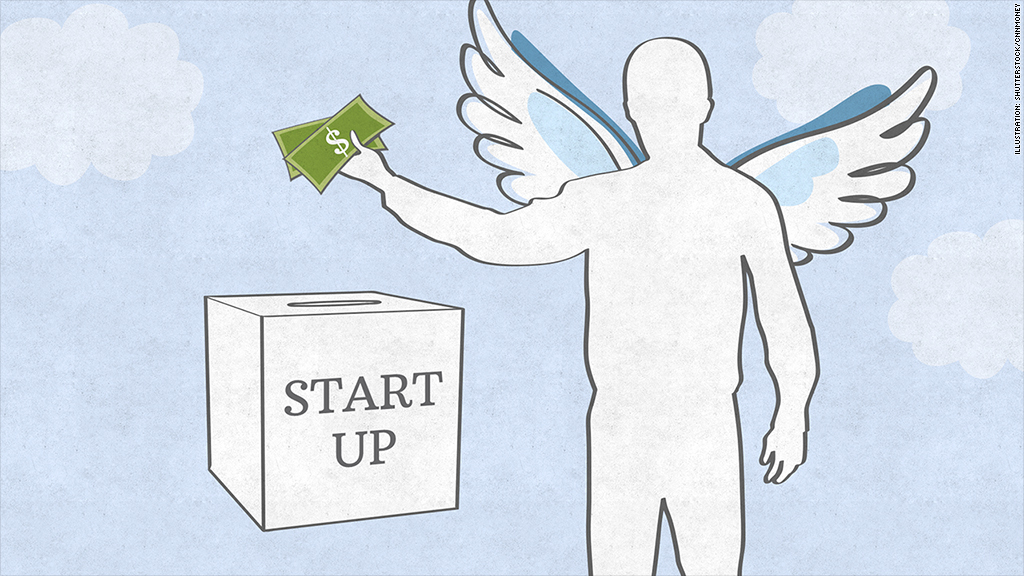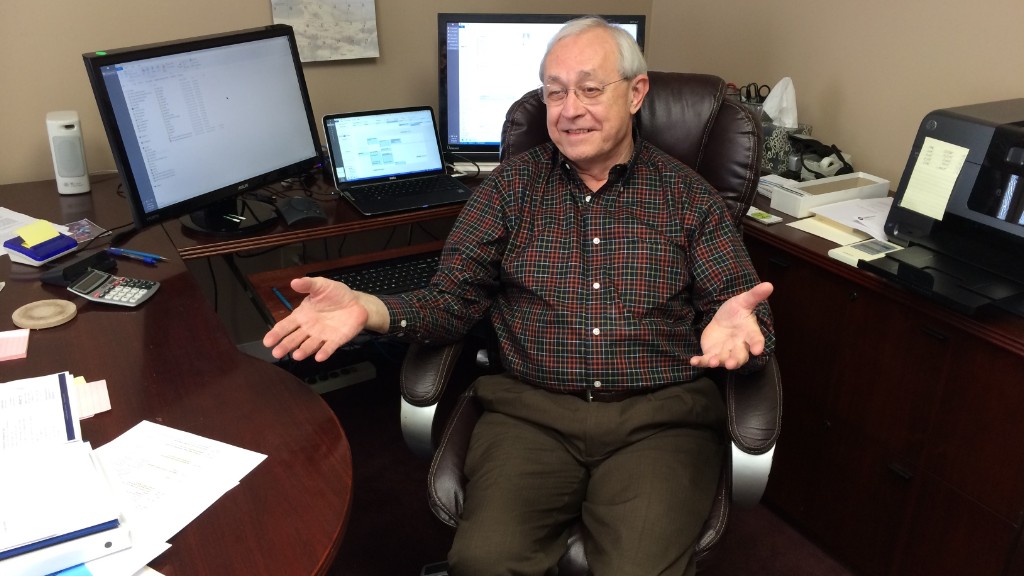
Utter the term "angel investing" to Dick Reeves, and you won't hear anything about 20-something tech billionaires clad in hoodies and sandals.
"Out here in the hinterlands, it's not Silicon Valley-like at all," said Reeves, who heads up Angel Syndicates Central, a Huntsville, Alabama-based network of small investors who provide seed funding for early stage companies.
"We're much more modest people. We invest much smaller amounts...it's a different game," Reeves told CNNMoney.
Reeves' group consists of physicians, engineers, and retired government workers, among others, who pool their money to invest in startup firms that they believe will be the next big thing.
It works like this: The group plows a few hundred thousand dollars into seven or eight investments a year. Each member typically invests about $27,000 in two or three of the deals, according to Reeves.
"They want to see entrepreneurs that they know succeed. They want to see products they think will benefit humanity get into the market, and they want to make a dollar doing it," he says.
Related: Black women struggle to fund startups
But many of those "average Joe's" could soon lose their ability to participate in angel investments. The Securities and Exchange Commission, in an attempt to weed out financial predators, is thinking about raising the minimum net worth thresholds required to invest in private offerings.
Risky business: Reeves, a former computer engineer who started and sold his own technology company years ago, insists that "angels" are under no illusions about the perils of investing in unproven businesses.
"We work to inform them and help them understand they can't pick the winners and losers on the front side of the investment," he said. "There are so many factors outside of the company's control that can kill it."

He explained that out of 10 deals, angels will lose all their money in about five or six of them. In the other one or two, they'll get back 50 to 70 cents on the dollar. The ninth investment will return about a dollar and a half, while the tenth "will be a star" and earn 10 to 20 times the initial invested capital, he claimed.
Related: Hedge funds want 'one-night stand' with startups
Successes for the Angel Syndicate Network include Dailyburn, a fitness app sold to media mogul Barry Diller's IAC (IACI) in 2010. Among its failures was a company that turned used restaurant oil into biodiesel fuel.
Pumping up protections: Under current rules, someone must be an "accredited investor" to put money into the types of private offerings utilized by angels. That means they have at least $1 million in investible assets (not including a primary residence) or make $200,000 annually.
But the SEC is reviewing that definition, as mandated by the Dodd-Frank law. The SEC's Investment Advisory Committee, which is made up of external finance industry professionals, pointed out in a recommendation report last month that the present financial criteria for accredited investors was conceived in 1982. Adjusted for inflation, the minimum requirements would be $2.5 million in assets or $500,000 in income, it noted.
Related: 5 things to know about income inequality
Marianne Hudson, Executive Director of the Angel Capital Association, a trade organization that represents groups like Reeves', estimates that about 30% of her members would be shut out of angel investing if those minimums were raised.
"A lot of angel groups would lose their members...In the end the real losers are the entrepreneurs that rely on angel capital to get started," she said.
Financial sophistication test: Instead of higher limits, the Angel Capital Association suggests a financial literacy test of sorts. Those with MBA degrees or experience in corporate finance would meet the criteria, as would people who are members of an established angel group, said Hudson.
As for Reeves, he confides that he himself would be disqualified as an angel investor should the minimum net worth requirement be raised to $2.5 million.
"I would ask them to be very careful not to throw the baby out with the bathwater," he wishes he could tell the SEC. "Let us function successfully as we have for 20 years. Don't damage that."


